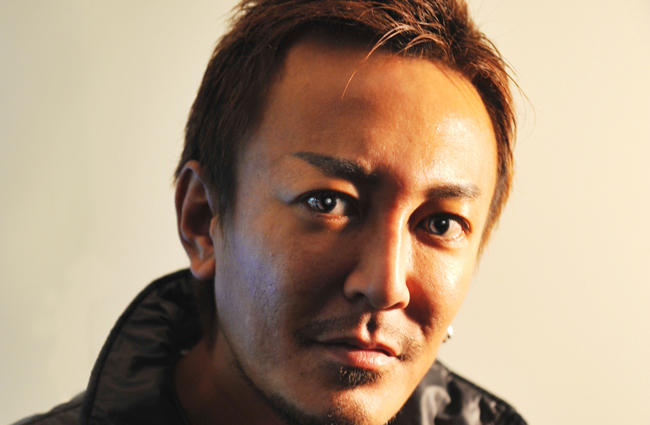1. Can you tell us a bit about how the business of creating games has shifted during your time in the industry?
Toshihiro Nagoshi: I think the change in feelings toward the “game” product has directly lead to a change in the “game business”. Twenty years ago, games were simply thought of as fun and an amusing. However, we have now entered a ubiquitous era, where it is possible for anybody, anywhere, with any form of console to be able to play games sometimes at an excessively low price. The technology, the network and the infrastructure have improved, and game genres have expanded so opportunities in the game business have also increased. However, as a result of this new form of business style, I feel that the style of generating income by simply using a standalone game has broken down.
2. How do you see the industry changing over the next 3 to 5 years? Soon we will see the next generation of games consoles available in stores. Obviously Nintendo’s Wii console has changed things. Where do you see the things going?
TN: It is no more than a prologue to the game industry at this point. The fingers and hands are the most skillful physical function of a human being and so the interface with games begins with the peripheral equipment, which requires the skillfulness of hand eye coordination.
Yet, we have arrived at the stage where the act of “playing with games” itself is being adapted to the whole body of the user and, it seems natural and somewhat inevitable for the way we play games to have spread from not only using our hands but also using our whole body. This trend of how we input is not temporary, and I think many more similar suggestions will be made looking ahead. I also think that these suggestions should be made not only by hardware makers, but also by software makers. I myself as a dreamer believes in the expansion in the variations of how to play a game based on the ideas that are currently being put forward.
3. Traditionally the power of the games industry has remained in the hands of the games makers – Nintento, Sega, Bandai - while manufacturing giants (with the exception of Sony) have struggled to enter the market or have stayed totally away from it. Why is this? Do you see this continuing?
TN: That is a good question. As a result of the change of environment in this era, the scheme of thinking about income and outlays from just one game has ceased to exist. It is now far more common sense to first make game content that will be profitable, and to then make secondary content into movies, anime, music, novels etc, and depending on the circumstances to gain profit from this type of merchandising. However, there are many times when we receive suggestions made by the industries we are receiving assistance from at the stage of secondary development of the game. I think there is a real possibility that other industries will extend their business model to include the game industry. In a sense, it is a threat, but for the industry, I think it is a good chance to revitalize.
4. As entertainment continues to evolve we are seeing games become more cinematic and with development of 3D cinematography, films become more immersive. Will the two merge fully at some point or does there need to be a kind of separation between film audiences and creators?
TN: A good example of this is the movie and game tie-up. Earlier, when a hit movie came out, we would obtain the rights to the film and make a game from the content. However, as time went by, Hollywood moviemakers tightened up the relationships with games developers in an attempt to rein in some of the soaring production costs. As a result, a scheme where production on games commenced at the same stage where the script of the film was finished was put in place. The movie production side supplied materials to create the game, so an arrangement was implemented where the game and movie of the same name came out in stores on the same day the movie came out in theatres.
This closeness however is only employed on business level, and it has not yet enhanced the production level of game development. In the future, there may be a time where game creators start to make suggestions to change the scenario of the film, such as the development of the story for the game to be more entertaining, for example. If there is going to be a unification of genres, it cannot be simply put together. What is important is that there is a match, where the merit towards the work and business for each industry is fulfilled. I think that now is the time where some such producers are in demand, and I myself would like to work more work with this approach.
Toshihiro Nagoshi is a video game producer and designer for Sega. While probably best known for the Super Monkey Ball series, Nagoshi's credits also include Daytona USA, Virtua Striker and Spikeout. His studio teamed up with Nintendo to produce the car racing game F-Zero GX for the Nintendo GameCube. He is also the producer for Ryu ga Gotuka series (known as the Yakuza series in North America) the first of which was reported to have a budget of over 20 million dollars. Recently, he was involved with the latest version of Super Monkey Ball, entitled Super Monkey Ball Banana Blitz, for Nintendo's Wii console.
Nagoshi will be speaking at the Geki Sanjikan - Passionate 3-hour Talk Show event which is part of the Japan International Contents Festival 2009 (CoFesta).
For more information go to http://www.geki3.jp
Blog:
Other posts by Japan Inc:






